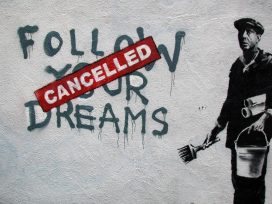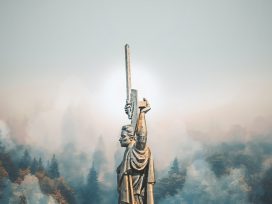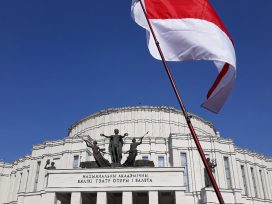
Physical fear and the dread of disappointment have been the dominant emotions whenever elections have come around in Belarus in the past two-and-a-half decades. This time is no different. And yet something has changed.

Physical fear and the dread of disappointment have been the dominant emotions whenever elections have come around in Belarus in the past two-and-a-half decades. This time is no different. And yet something has changed.

Social media users can be forgiven for feeling dissatisfied. ‘Old media’ news, based on the perpetual celebrity comeback, has hit a conceptual impasse with new cancel culture. Geert Lovink calls for the renewal of social networking tools giving users a constructive voice.

In the absence of civic traditions and positive social capital, society often organises itself along mafia-style norms. Post-communist Ukrainian society is a prime example. Yet grass-roots civic networks also operate as an alternative. Mykola Riabchuk investigates the sociology clash between these two state-nation building projects.

Violence against Roma is part of the European normality. It took over seven decades for Europe to acknowledge the genocide of Roma in WWII, and the communities still don’t have the means to heal among permanent attacks and persecution, with racist sentiment on the rise.

‘It’s astonishing how quietly fifteen million communists walked away from power, with no bloodshed. Though, as it turns out, not altogether.’ Svetlana Alexievich talks to the Belarusian journal ‘Dziejaslou’ about the legacies of the Soviet past, literary freedom and the role of culture in the country’s democratic struggle.

Lack of available housing has a particularly severe impact on Bulgarian and Romanian Roma: with few formal work prospects, they are forced into substandard accommodation and homelessness. Institutional and social discrimination compounds the problem, shifting the blame from unscrupulous tenants and employers onto vulnerable citizens.

Instead of looking at populists’ lies, it’s worth taking a look at the few truths they rely on: voters do recognize that liberal democracies have not worked in their favour. Can we ever shake off the demagogues and assimilate the genuine, if disruptive, energies of populism into a responsive democratic process? Relying on mere chance could be a way to renew representation.

What can the history of the soil tell us about modernity and its ills? An experiment in urban gardening sets Kate Brown thinking about the consequences of the western world’s perennial misuse of the land – and how to return life to today’s extinct terrains.

Three decades after the fall of the Berlin Wall, we are yet to come to terms with 1989’s historical significance, let alone the challenges of the present. What is the actual meaning of the ‘annus mirabilis’ and everything that followed? If this question is still unanswered, perhaps our approach is flawed, suggests Karl Schlögel.

Recently toppled colonial monuments have been used to evoke and connect global race-related injustices, past and present. Now anti-racism discourse on violence, worker’s rights, education and cultural heritage is encouraging greater accountability and social engagement. Black Lives Matter.

On 9 August, presidential elections will take place in Belarus. As on all previous occasions during the past two and a half decades, the regime has disabled the democratic opposition. This time, however, the protests are unprecedented in their size, confidence and breadth of appeal. Has there been a political awakening in the country?

Even to engage in debate over the existence of monuments in their current form is to acknowledge a connection between the colonial past and present-day inequality. For many, defence of heritage serves as a pretext for preservation of the memorial status quo.

What does the worship of big data have to do with positivism, and how does friction help create resistance? Philosopher Miriam Rasch talks about her essay in the inaugural episode of Gagarin, the new Eurozine podcast.

Trauma may be inheritable, even genetically, recent scholarship suggests. Could the devastating impact of slavery and oppression explain why Black people are overrepresented in the psychiatric system?

Instead of temporary solutions like shelters and hostels, Finland concentrates on providing permanent social housing to those in need. Although it requires significant investment, it’s always more cost-effective to end homelessness rather than trying to manage it. Also, it’s the right thing to do.

Scrap metal collectors, working on the periphery of society, sustain the ground level operation of a lucrative global market. Facing exploitation and illegitimacy, their conditions have worsened since COVID-19.